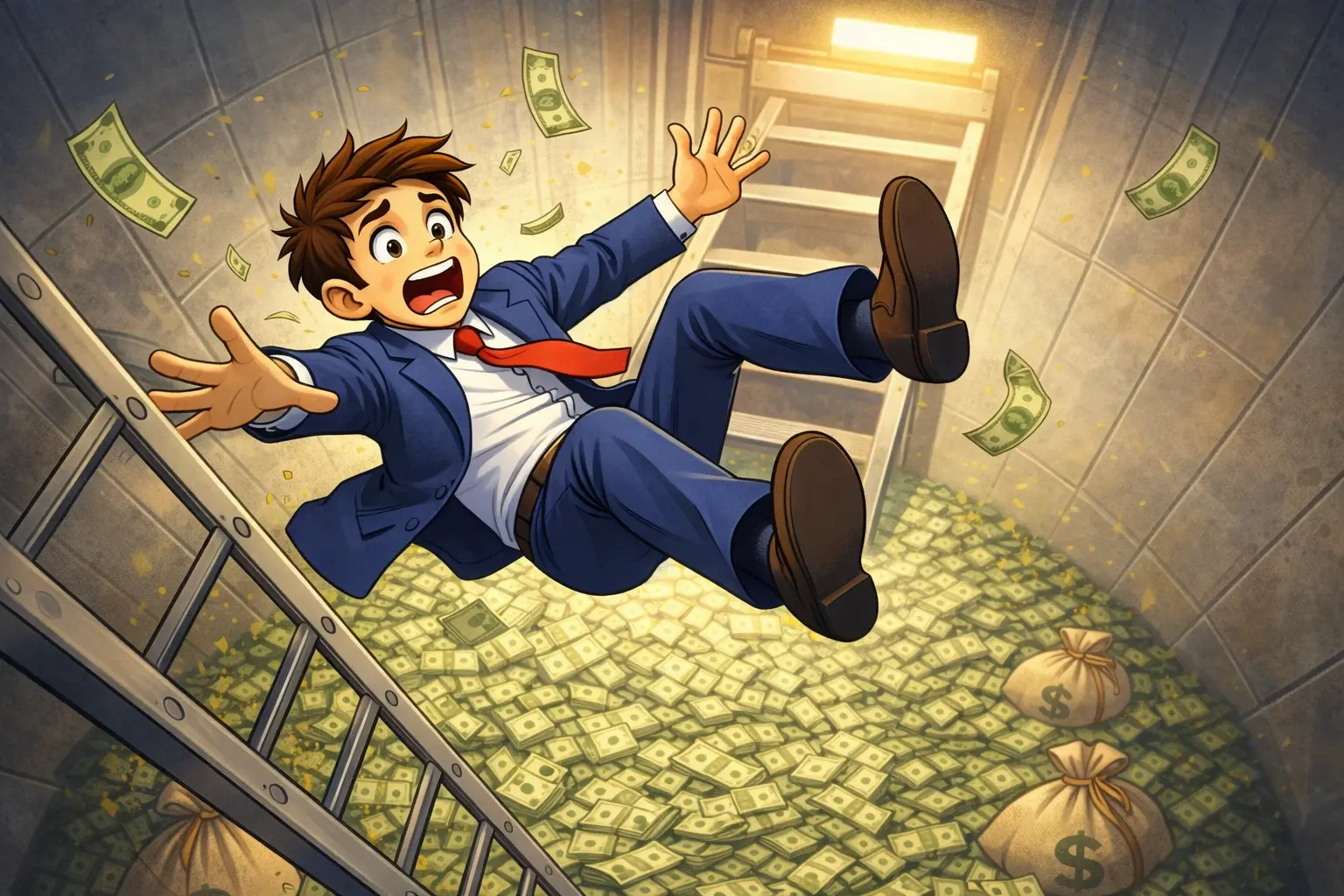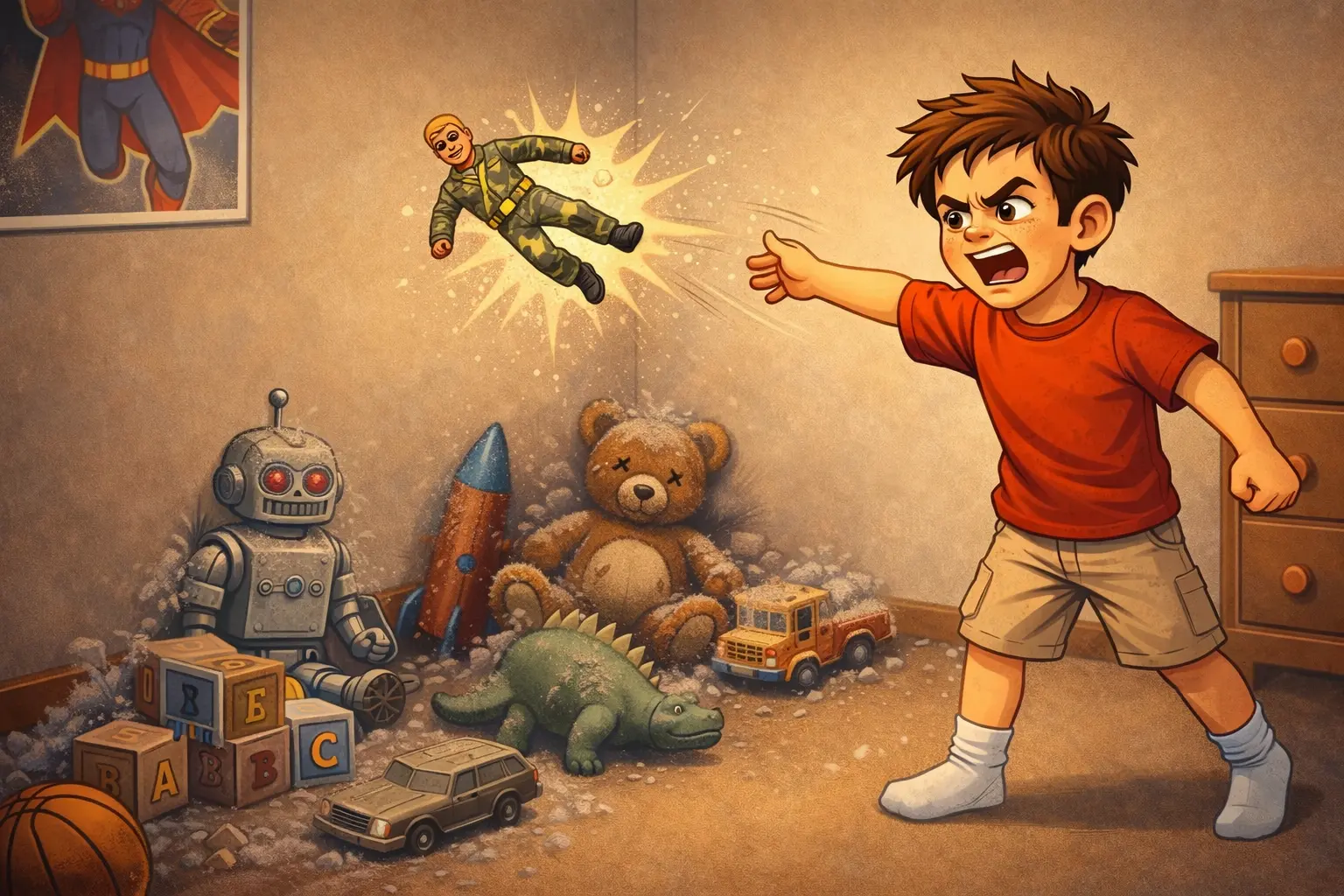I followed well-intended burger stock advice from one of my friends, and realized after a stressful period that picking individual stocks is not my strong suite.
A few years ago, I was having dinner in a restaurant with my friends when plant-based meat was having its moment in the Netherlands. It had crossed over from niche vegan territory into something genuinely cool, at least in my own social circles.
The marketing slogans were pretty clear, and extremely convincing as well: Better for the planet, better for your health, better for animals. The holy trinity of modern virtue, served with fries on the side.
Beyond Meat was the name on everyone’s lips and some of my friends were hyping up the rest to give it a try, so I decided to do just that. Admittedly, when my plate arrived and I took that first bite, I was genuinely surprised. It wasn’t beef, sure, but it was actually very enjoyable and I did not feel as sluggish as normal when I powered through a big burger and a big heap of fried food on the side.
The whole experience had been close enough to make me think this wasn’t a fad, that I’d just eaten a great burger, and that I was genuinely witnessing the future of food in front of my eyes.
One of my friends, the activist of the group, noticed me nodding approvingly. She knew that I was serious with my investing and had consistently been doing it for almost a year, so she said “You know Beyond Meat is publicly traded, right? You should get in”.
The Arrogant Investor
Of course I’d heard the classic beginner’s advice to invest in what you know and love. And suddenly here, like a gift from heaven, was a product I’d consumed, enjoyed, and actually believed in. This was food that I could get into a serious relationship with, and that would make me simply buy new pants if I got a little heavier because of it. The logic felt airtight, so that night I opened my brokerage app, bought a small position, and went to sleep feeling like I had found my edge.
For about a week I was insufferable, because I was genuinely convinced I’d spotted something early. I was going to ride this wave all the way to personal glory and enormous profits.
Then the stock started sledding downhill like my niece and nephew do on a snowy day, seemingly without any intention to return to previous levels.
Beyond Stress
The whole thing went slow at first. A red day here, a small dip there, nothing major to worry about. But over time it kept going on steadily, persistently, like a balloon losing air so gradually you don’t notice until it’s suddenly sitting on the floor.
That was the moment when the stress kicked in, hard, and I realized I had absolutely zero clue of what I was doing.
I didn’t understand Beyond Meat’s financials, couldn’t name their competitors, and had no sense of the margins in plant-based protein or the overall risks the industry faced. My entire investment thesis and due diligence for buying the stock, if you could even call it that, had literally been “tastes great with fries”.
So I naturally did what any panicking amateur does: I tried to educate myself after the fact. Earnings reports, news articles, Reddit threads, analyst commentary, literally anything that could make me better understand the situation and the company. It was like cramming for a final exam I’d already failed and at this point I certainly wasn’t investing anymore, I was merely firefighting.
The stress about the movements of the stock started creeping into everything. I checked the price when I woke up, at lunch, before bed, and anywhere in between. Every dip felt personal, and every piece of bad news like I was being attacked.
My overall investment portfolio was mostly boring, diversified ETFs, so the position of the stock was marginal compared to the rest. Nevertheless, not being able to explain what was happening to a small part of my portfolio and trying to compensate for that had easily started occupying over ninety percent of my mental energy.
At some point I simply couldn’t take it anymore. The stress had started distracting from my responsibilities at work, which was where I eventually drew the line that made me sell the whole position without blinking twice. The money I lost wasn’t significant, my portfolio was fortunately still small. The relative percentages of the loss and the overall experience, however, certainly were.
If You’re Not Edgy, You’ll Be Stressy
Every investor fantasizes about the hundred-bagger: You find the next Amazon before anyone else does, buy in early, hold on through thick and thin, and someday wake up extremely rich. It’s a very convincing and beautiful dream and it’s probably also, for most of us at least, a trap.
Because here’s what my Beyond Meat adventure made painfully clear: without an edge you’re not investing, you’re simply making uneducated guesses with your own money. That’s completely fine at a casino, where you know the house wins and you’re paying for entertainment, but it’s less fine when you’re lying awake at midnight while wondering if you’ve just thrown away some of your life savings.
An edge means you understand or know something the market hasn’t fully priced in. Maybe you work in the industry, have spent years studying the sector, or are able to access information, insights or other resources that most people don’t. When it came down to plant-based burgers, I had none of that. I literally only had a tasty burger and a friend’s well-intended recommendation.
I also learned that the cost of an investment isn’t just what you pay for it. There can be serious and gradually increasing stress involved if you’re not sufficiently careful. Every hour spent anxiously refreshing prices was an hour not spent on doing my best at work, maintaining relationships, or having proper sleep. Every night of broken rest chipped away at my clarity and judgment in all aspects of life, and by the time I sold my position I’d paid far more in mental energy than I ever did in euros.
Taking a Different Kind of Risk
Admittedly, this whole experience didn’t turn me into a conservative investor who just puts his money in a globally diversified ETF and then goes into hibernation until his portfolio has grown. I still tremendously enjoy watching my portfolio, most of the time at least, and still take plenty of risks. But that risk is not consolidated into individual stocks anymore.
Individual stocks demand an edge I don’t have or take the time to develop. When investing in individual stocks, you’re actively betting that you know something about this specific company that the collective market, with all its analysts and algorithms, has somehow missed. That’s a hard game and, for most people, it’s a losing game. The effort required to find an edge is, in my case, better spent elsewhere.
If you were to look at my investment portfolio today, you’d see both diversification and a clear focus. It contains a small yet diversified collection of thematic ETFs betting on technological shifts with an intention to significantly change what our daily lives and the core processes of companies are going to look like. It’s a high-conviction, high-volatility approach that would make some people deeply uncomfortable.
But there’s a crucial difference between the risk associated with my current portfolio and the risk I was facing when investing in plant-based meat.
When I own a thematic ETF, I’m investing in a generic direction, not on my ability to pick the winning horse. This approach has been one of the reasons why I’ve managed to ride a significant portion of the AI wave with decent results. I don’t need to know which AI company will dominate the next decade, I just need to believe that AI matters. That’s a belief I can verify every day at work, where I watch whole departments restructure their entire workflows around it. I’m not guessing about a single company’s execution, but I’m observing and following a shift that’s already happening in front of my own eyes.
Thematic ETFs ask for conviction in a trend and the patience to hold through volatility, whereas a single stock usually requires you to be smarter than the market. Following a thematic ETF strategy just requires me not to panic when the market gets nervous, which so far seems to suit my personality reasonably well.
Good Sleep is the Best Return on Investment
Have my current approach and portfolio made me a good investor? I honestly don’t know. The overall numbers have been good, probably a couple percentages above the market average, but I’m not sure that’s the point anymore.
What I know is this: I sleep well at night and I don’t check market prices compulsively anymore. When markets drop I feel something closer to curiosity than dread, and occasionally even excitement about buying cheaper. My portfolio works for me instead of against me, and I’ve had a couple of moments already where I put in money on what in hindsight turned out to be best-buy moments.
When I think back to that dinner and the plant-based burger, I can finally laugh about it. I walked in hungry and walked out convinced I’d found my ticket to early retirement. But in the end, I probably found something much more valuable: the knowledge that the best portfolio isn’t the one with the highest ceiling, but the one I can actually live with.
Beyond Meat cost me money, sure, but the stress it bought me was the real price. And once I understood that, I stopped trying to pick stocks and started building something I could hold comfortably without losing my mind.
Honestly, sometimes the best return on investment isn’t the money. It’s a good night of sleep while your money keeps working for you through the highs and lows.
If this story gave you something, feel free to pass it on!









